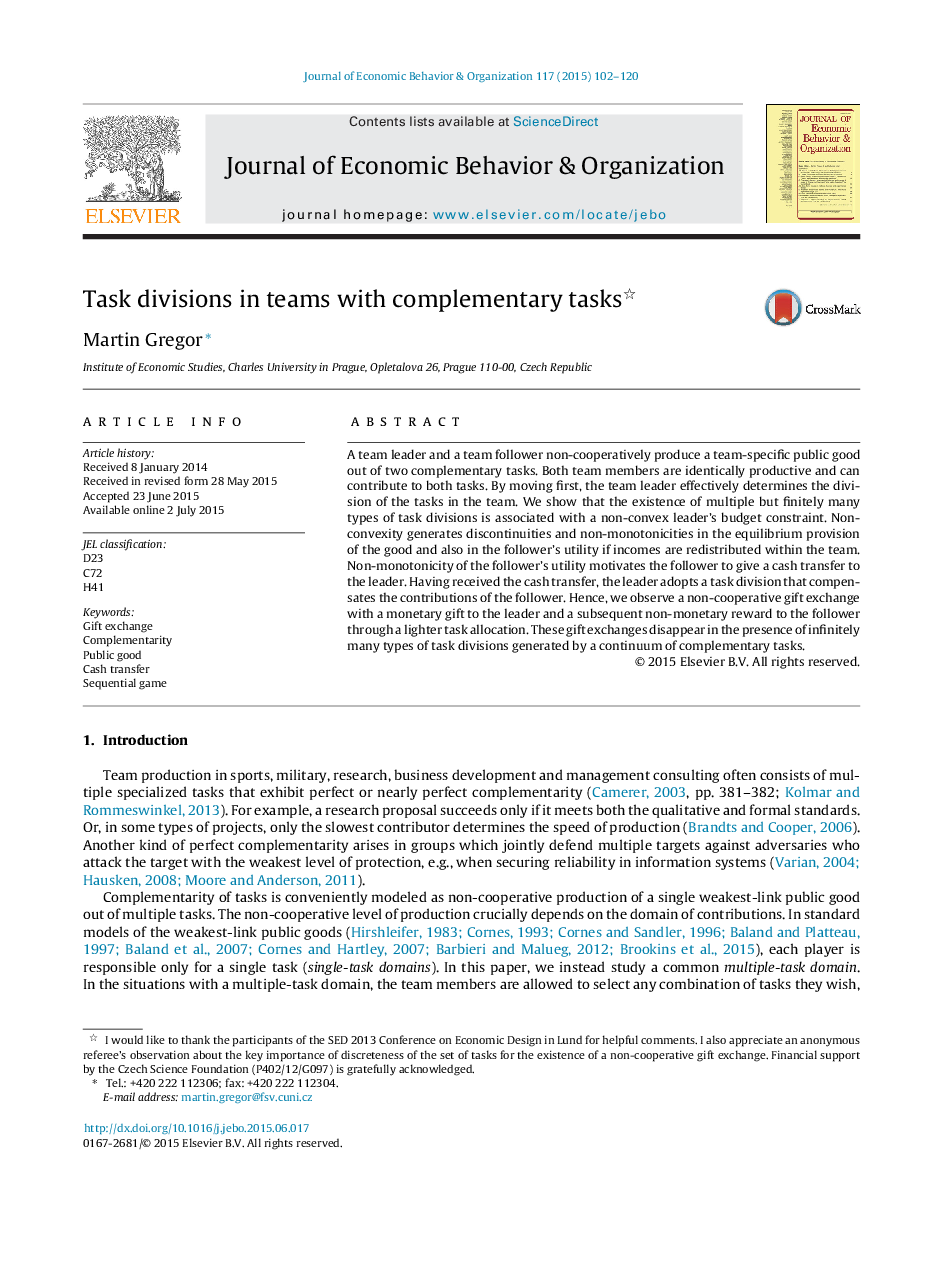| Article ID | Journal | Published Year | Pages | File Type |
|---|---|---|---|---|
| 7243044 | Journal of Economic Behavior & Organization | 2015 | 19 Pages |
Abstract
A team leader and a team follower non-cooperatively produce a team-specific public good out of two complementary tasks. Both team members are identically productive and can contribute to both tasks. By moving first, the team leader effectively determines the division of the tasks in the team. We show that the existence of multiple but finitely many types of task divisions is associated with a non-convex leader's budget constraint. Non-convexity generates discontinuities and non-monotonicities in the equilibrium provision of the good and also in the follower's utility if incomes are redistributed within the team. Non-monotonicity of the follower's utility motivates the follower to give a cash transfer to the leader. Having received the cash transfer, the leader adopts a task division that compensates the contributions of the follower. Hence, we observe a non-cooperative gift exchange with a monetary gift to the leader and a subsequent non-monetary reward to the follower through a lighter task allocation. These gift exchanges disappear in the presence of infinitely many types of task divisions generated by a continuum of complementary tasks.
Related Topics
Social Sciences and Humanities
Economics, Econometrics and Finance
Economics and Econometrics
Authors
Martin Gregor,
